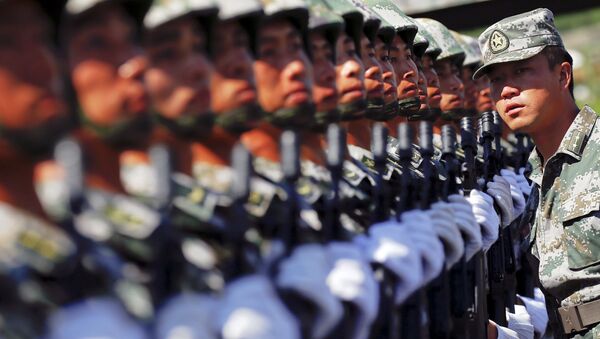The annual “Defense on Japan” report, published on Friday, notes that China’s continued ability to “reinforce its military capabilities both in quality and quantity” and intensified activities within the Sea of Japan and Pacific Ocean have garnered increased attention from Tokyo.
“The reality is that China is rapidly increasing military spending, and so people can grasp that we need more pages,” Japanese Defense Minister Taro Kono said at a media briefing, reported Reuters. “China is deploying air and sea assets in the Western Pacific and through the Tsushima Strait into the Sea of Japan with greater frequency.”
These military actions and China’s “strengthening capabilities” in the areas of both space and cyberspace have led Tokyo to deem Beijing its number one security threat, as it possesses the ability to “fulfill its unilateral demands without compromise.”
Chinese Foreign Ministry spokesman Geng Shuang said that Beijing will not accept the “groundless criticism” detailed in the report, according to Reuters.
This release comes days after Japan revealed that both its Maritime Self-Defense Force’s Aegis-equipped destroyer in the Sea of Japan and land-based radar had difficulty detecting recent tests missile tests conducted by North Korean leader Kim Jong Un and Pyongyang.
North Korea’s “state-of-the-art” KN-23 short-range ballistic missile, which can reach regions of Japan, was one particular projectile that caused alarm due to its irregular trajectory, which allows the missile to evade current Japanese radar systems.
The Friday report’s list of security cooperation partners also echoed the public loosening of ties between Tokyo and Seoul that has come about since the Supreme Court of Korea ordered a Japanese steel company and other businesses to compensate World War II-era South Korean workers who were subjected to forced labor without payment.
Kono asserted in October 2018 that the ruling was “regrettable and totally unacceptable,” as it violated the 1965 Korea-Japan Normalization Treaty. Since this disagreement, there has been a consistent breakdown of trust and cooperation between the countries through a series of tit-for-tat moves.
The most recent display of this degradation in relations came with Seoul’s August 22 decision to unilaterally terminate the 2016 General Security of Military Information Agreement between South Korea and Japan. Kim You Geun of South Korea’s National Security Council told the public that the move came as a response to Japan removing South Korea from its list of preferred trading partners.


